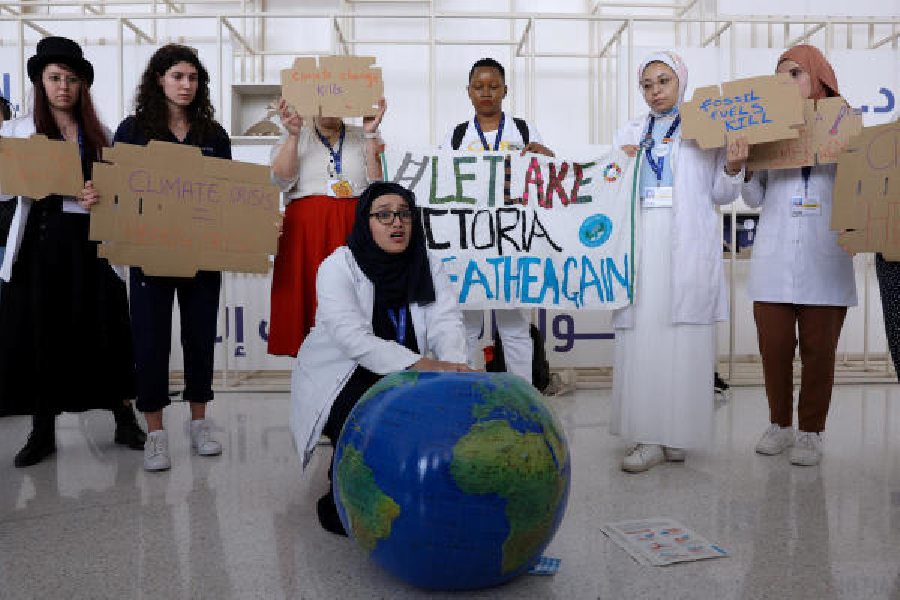The UN Climate Change Conference (COP28) in Dubai announced on Sunday that 123 countries had signed a declaration on the impact of climate change on health, an issue occupying centre-stage at a global climate summit for the first time.
However, India, a highly vulnerable country, was a conspicuous absentee from the list of signatories although officials said efforts were on to persuade New Delhi to join
in.
The successive Global Climate Risk Index reports that the non-profit Germanwatch had released on the sidelines of earlier global summits had described India as one of the topmost countries in climate-linked mortality.
COP28 director-general Majid Al Suwaidi expressed hope that the climate-health agenda would find space in the cover text of COP28. “It’s just not a declaration, we are serious about it,” he told The Telegraph.
“We must rapidly protect and promote their (climate-affected people’s) health and well-being while improving the climate resilience of healthcare systems and reduce climate-health risks.”
On India not signing the declaration, Al Suwaidi said efforts were on to engage with all the countries that were yet to sign it. “Our job is to facilitate; the final decision lies with the countries,” he said.
A source in the Indian delegation confirmed there were no plans to be part of the high-level ministerial meeting convened on the agenda of climate and health, as neither Union health minister Mansukh Mandaviya nor any senior health official was attending COP28.
Senior WHO officials, the agency that pushed the declaration, said they were engaging with all countries, including India.
Maria Neira, director of the WHO’s public health and environment department, told this newspaper: “India is an important partner, a vast country with a huge population; also, a country with big technologies…. I am sure we can find a way.”
All major European countries, the US and China have signed, COP sources said.
The declaration refers to various important subjects linked to health such as air pollution, a key issue in India.
“We, on the occasion of the first Health Day at the 28th UN Climate Change Conference (COP28), express our grave concern about the negative impacts of climate change on health,” it says.
“We stress the importance of addressing the interactions between climate change and human health and wellbeing....”
India had earlier countered WHO data on air pollution and Covid deaths in the country.
“This, the climate-health declaration, is the third major pledge-cum-declaration, after the food and energy-linked ones, that India has refused to be part of,” an Indian observer in Dubai said.
“This is not really a good omen after the Indian Prime Minister showcased India’s leadership in global climate action. India could definitely make its point in multilaterals but not being engaged is not a good idea.”
A senior official in the Union environment department sought to underplay the matter saying these were not part of the official COP process. He said India was engaging with the formal negotiation.
A COP veteran said: “Such endeavours, with time, often turn into major agendas…. Loss and damage funding, though pushed by the least developed countries and civil society for decades, was not part of even the negotiation text when COP27 started but is now a frontal issue. Similarly, the International Solar Alliance, launched by India with others, gradually catapulted into a major facilitator of the COP process.”
A statement issued by the COP presidency said: “Over 120 countries endorsed COP28 Declaration on Climate and Health on 2 December during the World Climate Action Summit (and) 1 billion USD of climate health financing was galvanised.”










